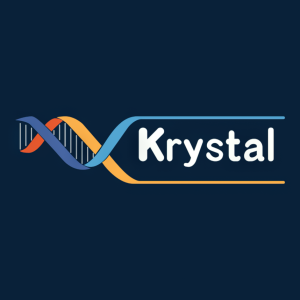Krystal Biotech Announces First Patient Dosed in Phase 3 Clinical Trial of KB803 for the Treatment and Prevention of Corneal Abrasions in Patients with Dystrophic Epidermolysis Bullosa
Rhea-AI Summary
Krystal Biotech (NASDAQ: KRYS) has initiated dosing in the Phase 3 IOLITE clinical trial of KB803, evaluating its effectiveness in treating and preventing corneal abrasions in dystrophic epidermolysis bullosa (DEB) patients. The trial is designed as an intra-patient, double-blind, multicenter, placebo-controlled study with crossover design.
The study will enroll approximately 16 subjects, targeting DEB patients aged 6 months or older. Previous compassionate use of the treatment showed promising results, with one patient achieving full corneal healing at 3 months and improved visual acuity from hand motion to 20/25 at 8 months. The condition affects over 750 patients in the United States and 2,000 worldwide, with no current corrective therapies available.
The trial's primary endpoint will measure the change in average days per month with corneal abrasion symptoms while receiving KB803 versus placebo. The treatment is administered as a weekly eye drop at a concentration of 109 PFU/mL.
Positive
- Previous compassionate use showed full corneal healing and significant visual improvement
- Large addressable market with over 2,000 patients worldwide and no current corrective therapies
- Decentralized study design allowing home administration
- Strong statistical power of 90% to detect treatment effect
Negative
- Small trial size of only 16 subjects
- Requires 12-week run-in period before treatment can begin
- Limited previous data with only one compassionate use case
News Market Reaction
On the day this news was published, KRYS gained 4.17%, reflecting a moderate positive market reaction.
Data tracked by StockTitan Argus on the day of publication.
Intra-patient, double-blind, multicenter, placebo-controlled study with crossover design
Repeat administration under compassionate use was previously shown to be well tolerated and associated with full corneal healing by 3 months as well as significant visual acuity improvement from hand motion to 20/25 at 8 months
PITTSBURGH, June 24, 2025 (GLOBE NEWSWIRE) -- Krystal Biotech, Inc. (the “Company”) (NASDAQ: KRYS) announced today that the first patient has been dosed in its Phase 3 clinical trial (“IOLITE”), an intra-patient, double-blind, multicenter, placebo-controlled study with crossover design evaluating KB803 for the treatment and prevention of corneal abrasions in dystrophic epidermolysis bullosa (DEB) patients. KB803 is designed to deliver two copies of the COL7A1 transgene to the corneal epithelium and enable local type VII collagen production in the front of the eye.
“The initiation of IOLITE is another important step for Krystal as we work tirelessly to treat DEB as comprehensively as possible,” said Suma Krishnan, President, Research & Development, Krystal Biotech, Inc. “With dramatic and durable improvements already reported for the patient treated under compassionate use, we are excited by the potential of KB803 to restore full eye function and reduce or eliminate the otherwise persistent threat of vision loss imposed by these recurring corneal abrasions.”
Over
IOLITE Phase 3 Study
IOLITE is an intra-patient, double-blind, placebo-controlled, multicenter Phase 3 study with a crossover design to evaluate KB803, administered as an eye drop, for the treatment and prevention of corneal abrasions in DEB patients, 6 months of age or older. Patients seeking to participate in IOLITE must first enroll in the ongoing natural history study and complete a 12-week run-in period, during which they report the number of days that they experience symptoms of corneal abrasions. Subjects meeting the inclusion criteria following the 12-week run-in are eligible to participate in the IOLITE trial.
Approximately 16 subjects will be enrolled in the IOLITE study. The sample size was calculated based on the average symptomatic days per month and standard deviation data from subjects enrolled in the natural history study who would be otherwise eligible for IOLITE and provides
The primary study endpoint will be the change in the average number of days per month with corneal abrasion symptoms while receiving KB803 versus placebo. Statistical significance will be analyzed via intra-patient paired measurements to account for potentially expected high inter-patient variability. Safety and secondary efficacy data, including weekly assessments of eye pain and monthly Epidermolysis Bullosa Eye Disease Index (EB-EDI) questionnaires, will be collected through to the end of the 24-week study period. More details of the IOLITE study can be found at www.clinicaltrials.gov under NCT identifier NCT07016750.
Ongoing Natural History Study
48 DEB patients have been enrolled in the ongoing natural history study. 39 of the 48 subjects (
Previous Compassionate Use Case
Beremagene geperpavec-svdt (B-VEC) had previously been applied to the eye of one DEB patient under a compassionate use protocol. The clinical observations of this compassionate use case were published in the New England Journal of Medicine in February 2024. The patient presented with severe cicatrizing conjunctivitis secondary to DEB. Surgical symblepharon lysis of the patient’s right eye with pannus removal was conducted and regular B-VEC administration as an eye drop directly to the eye, at a concentration of ~109 PFU/mL, were added to routine post-surgical care. Treatment was well tolerated with no drug-related adverse events noted. Full corneal healing was observed at three months, as well as significant visual acuity improvement from hand motion to 20/25 by eight months.
About KB803
KB803 is a redosable, eye drop gene therapy designed to deliver two copies of the COL7A1 transgene to the epithelial cells in a patient’s eye for the treatment and prevention of corneal abrasions in DEB patients. The goal of therapy with KB803 is to address the fundamental disease-causing mechanism at the molecular level, by providing the patient’s epithelial cells of the eye with the template to make normal type VII collagen locally. In a DEB patient treated under compassionate use with clinical observations reported the New England Journal of Medicine, regular eye drop administration was well tolerated with full corneal healing observed at three months, as well as significant visual acuity improvement from hand motion to 20/25 by eight months.
About Krystal Biotech, Inc.
Krystal Biotech, Inc. (NASDAQ: KRYS) is a fully integrated, commercial-stage, global biotechnology company focused on the discovery, development and commercialization of genetic medicines to treat diseases with high unmet medical needs. VYJUVEK®, the Company’s first commercial product, is the first-ever redosable gene therapy and the first genetic medicine approved by the FDA and EMA for the treatment of dystrophic epidermolysis bullosa. The Company is rapidly advancing a robust preclinical and clinical pipeline of investigational genetic medicines in respiratory, oncology, dermatology, ophthalmology, and aesthetics. Krystal Biotech is headquartered in Pittsburgh, Pennsylvania. For more information, please visit http://www.krystalbio.com, and follow @KrystalBiotech on LinkedIn and X (formerly Twitter).
Forward-Looking Statements
Any statements in this press release about future expectations, plans and prospects for Krystal Biotech, Inc., including statements about the potential of KB803 to restore full eye function and reduce or eliminate the otherwise persistent threat of vision loss imposed by recurring corneal abrasions associated with DEB; the Company’s expectations (i) that over
CONTACT
Investors and Media:
Stéphane Paquette, PhD
Krystal Biotech
spaquette@krystalbio.com








